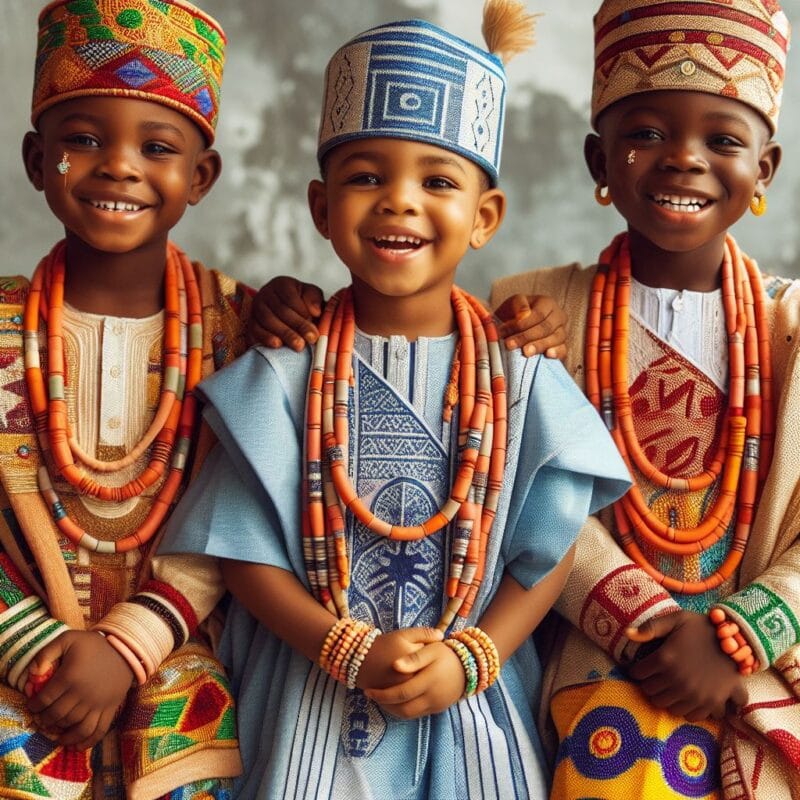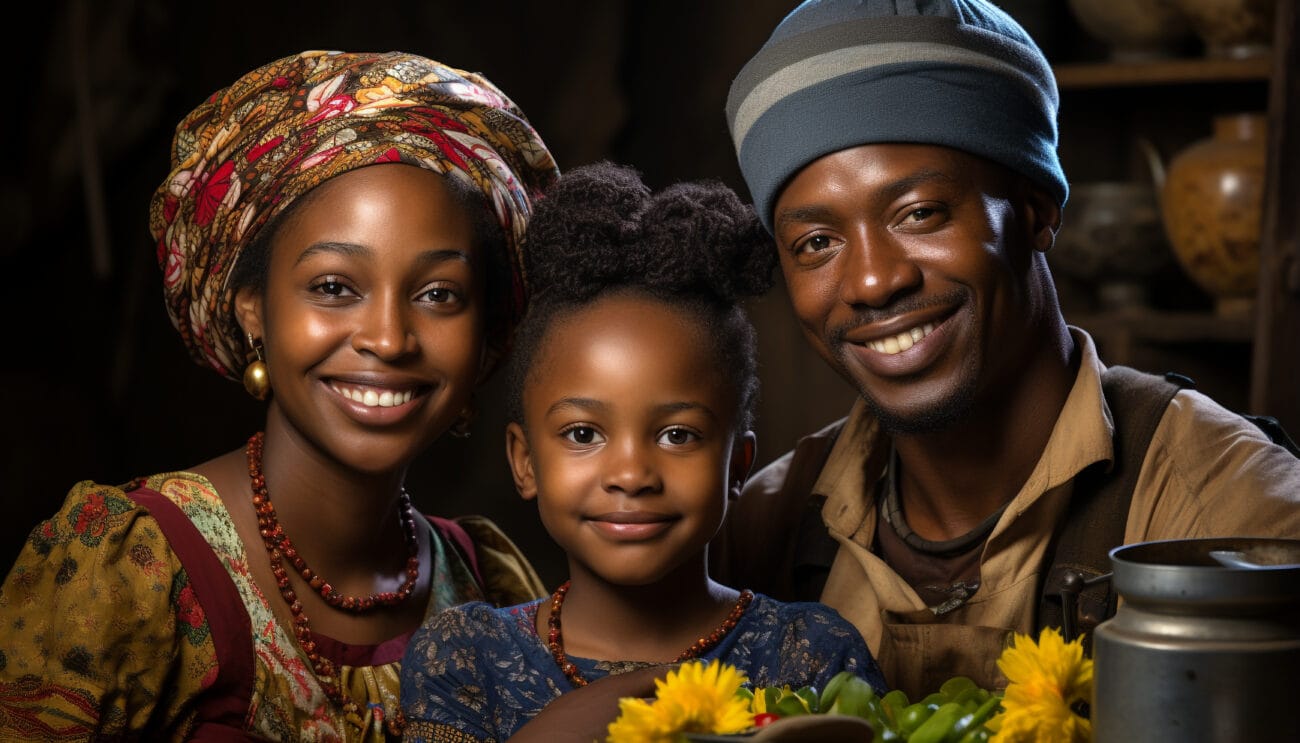How To Raise Bilingual Kids: Balancing English With Nigerian Language

Do you dream of raising a bilingual kid who can confidently communicate in English and your Nigerian language? Then this is the right article for you.
As parents, it’s common to worry that your kids won’t learn or appreciate your native language, whether it’s Yoruba, Igbo, Hausa, or one of the other 250 wonderful cultures in Nigeria. The influence of the English language can be really strong, as your kids hear and speak English every day in school and with friends, and it can feel like your Nigerian language gets pushed aside.
Why Are We Worried?
The world today seems to favor English, especially in countries where English is the main language. Many parents feel that if their children don’t learn English well, they might struggle in school or future jobs. At the same time, we don’t want our kids to lose touch with their heritage and culture.
Are These Fears Normal?
Absolutely! Many parents share these concerns. It’s normal to feel guilty about not passing on your culture to your kids. You might worry that if they only speak English, they’ll lose touch with their Nigerian roots.
Some parents also fear being judged by their family back home for not teaching their children their native language and traditions. These worries are valid, and it’s okay to feel this way. It shows how much you care about your family’s heritage!
Benefit Of Raising A Bilingual Nigerian Child
Research actually shows that raising a bilingual kid can be very beneficial. Children who grow up knowing more than one language often do better in school and are more flexible in thinking. Some other benefits of having your child speak both their Nigerian language and English are:
- Best Of Both Worlds: Children who speak both languages also get to enjoy the best of both worlds in terms of culture and traditions. So even though your child is in a predominantly western culture, they get to also enjoy your Nigerian heritage that you are proud to have.
- Bilingual Kids Are Excellent Communicators: They learn to listen actively, speak clearly, and adapt to different situations and different people. This is because understanding languages also involve learning the nuances around different contexts of use, which helps them relate better with others.
- More Room For Job Opportunities: Speaking multiple languages is an advantage when searching for job opportunities. Many companies work globally and speak globally which makes your child an attractive candidate.
- Enhanced Mental Activity: Learning different languages keeps your child’s brain active and flexible. It improves their memory, concentration and problem solving skills.
- It Creates Room For Lifetime Friendship: Speaking multiple languages opens doors to friendships from all around the world! Your child will get to have a global understanding and connection with friends.
If your child does not already speak your native language, it’s helpful to note that it is not too late to help your kids learn your Nigerian language alongside English!
How To Help Your Child Learn Your Nigerian Language And Become Bilingual
Identify Your Language Goals
Before starting your language learning journey, define your goals. What languages do you want your kids to learn? Perhaps you and your spouse come from different Nigerian cultures and speak different languages. You need to agree on which of the Nigerian languages you want your child to learn, and why. Do you want them to speak Nigerian languages like Igbo, Yoruba, or Hausa? Or perhaps the language of your host country? Knowing your objectives will help you create a focused plan.
Choose a Language Learning Plan:
This will typically involve deciding what steps to take to achieve your family’s language learning goals. We highly recommend enrolling your child in one of LearnWazobia’s language learning programs for a start. Our Igbo, Yoruba, or Hausa language programs for children are an excellent start for any Nigerian family.

Ms Adeyi, a Yoruba woman who lives in Canada, shared her experience with us recently.
“When my son was born in Canada, I was filled with joy, but also consumed by a worry that wouldn’t let go. As a Yoruba woman, my culture and language meant the world to me, and I was concerned that growing up in an English-speaking environment would mean he’d lose touch with his roots.
Feeling somewhat lost, I shared my concerns with a friend who suggested a language-learning platform called LearnWazobia. She raved about how it helped her children embrace their Nigerian languages through fun and engaging Lessons. Skeptical but hopeful, I decided to give it a try.
As soon as I signed up, I was amazed by the variety of resources available; Flashcards, worksheets, videos etc all focused on teaching Yoruba in a way that felt natural. I started incorporating these lessons into our daily routine. During our ‘Yoruba Hour,’ we would play some games with flashcards, and my son would call out every object he sees in yoruba. The engaging style made learning feel less like a task and more like a game.
How-to-help-your-child-practice-nigerian-language-with-flashcards
One day, we discovered a catchy Yoruba song . I couldn’t help but dance along, and soon my son joined in, giggling and singing at the top of his lungs. That moment of joy was a breakthrough; he was learning without even realizing it! We’d dance around the living room, and he’d pick up new words quickly.
Connecting With Other Speakers
The magic didn’t stop there. LearnWazobia also has a community of parents, so I connected with others who wanted the same for their kids. Also connected with other yoruba parents in my community. We arranged playdates where our children could come together, playing games and speaking Yoruba while still feeling comfortable using English when they wanted to. The first time he spoke Yoruba with another child, I felt a wave of relief and pride wash over me.
Balancing Both Languages
Fast forward to today, I am proud to say my son has found a balance. He can confidently introduce himself in English and Yoruba without any hesitation. When he introduces himself, he proudly states, “orukọ mi ni Daniel; Mo nifẹ eja! Lol! (My name is Daniel, I love fish). It warms my heart to see him embrace both languages.
Using LearnWazobia transformed our experience. It helped me create a bilingual environment that felt vibrant and lived-in rather than forced. I realized that raising a child in a bilingual setting isn’t about perfection; it’s about creating a space where both languages can coexist and flourish. Seeing my son navigate both worlds has been one of the greatest joys of my life.
How To Handle Language Mix-Up
When kids learn two languages, they might mix them up, which can scare parents. You might notice your children switching between languages in a single sentence or using words from both languages together. It can be confusing, but it’s actually a part of raising a bilingual kid.
Ms Adeyi also experienced this:
“At first, everything seemed fine. We talked, I sang Yoruba lullabies, and I read him bedtime stories in our native language. But as soon as he started speaking, I noticed something that bothered me a bit – he would mix up English and Yoruba. For instance, when he would say “I want eja” instead of “mo fe eja,”
Initially I was worried, but I received similar stories from other Nigerian parents, which assured me that it was a normal part of the learning experience. It wouldn’t affect his English speaking skills, nor hinder his Yoruba learning.
More Tips On How To Balance English Language With Your Nigerian Language
Set Language Rules
One way to help your kids understand when to use which language is to create special “language zones.” For example, you might decide that at home, everyone speaks your native language while at school, they can use English. This simple rule can help them know which language to use in different situations.
Celebrate Mistakes
Kids will make mistakes as they learn, and that’s totally fine! It’s important to encourage them to keep talking and expressing themselves. If they mix words or say something silly, instead of getting frustrated, just gently correct them. For example, if they say, “I want to go to the park,” but in a mix of both languages, you can say, “Oh, you mean you want to go to the park? Let’s say it in Yoruba: ‘Mo fẹ́ lọ sí park!’” We have good feedback that this technique works very well.
Be Present With Both Languages
Expose your kids to your native language every day. Use it during meals, conversations, and family events. Make it a habit, and over time, they will get used to hearing and using both languages regularly.
Support Their English Learning
Remember that helping your kids learn English is also important. Make sure they have access to fun English books, movies, and activities. This will help them feel comfortable in school and in social settings while also mastering your native language.
Be Patient
Language learning takes time! Every child is different, and there’s no rush. Celebrate small wins, whether it’s them using a new word or expressing themselves. If they need extra time with something, be patient and adjust your approach.
Tips-to-overcome-language-learning-challenges
Conclusion
Raising bilingual kids who can speak both English and your Nigerian language is a beautiful journey that connects them to their roots. By enrolling your little ones in Igbo, Yoruba, or Hausa classes with LearnWazobia, you’re helping them learn their culture while also fitting in with the world around them. LearnWazobia offers fun and easy lessons that make learning enjoyable. Join today, and see how your children thrive as they embrace both languages!









[…] How To Raise Bilingual Kids: Balancing English With Nigerian Language […]
[…] Create Time To share Your Nigerian Culture With Your Kids : Your kids will only get to know about their culture if you start enlightening them about it. Just as you have succeeded in introducing a new culture to them, sharing your cultural values should not be a big deal. While they learn about their new environment, remember to always prepare Nigerian meals, play Nigerian music and also speak your native language at home. While trying to use your native language daily you have to learn to balance your Nigerian language with English language. […]
[…] How To Raise Bilingual Kids: Balancing English With Nigerian Language […]